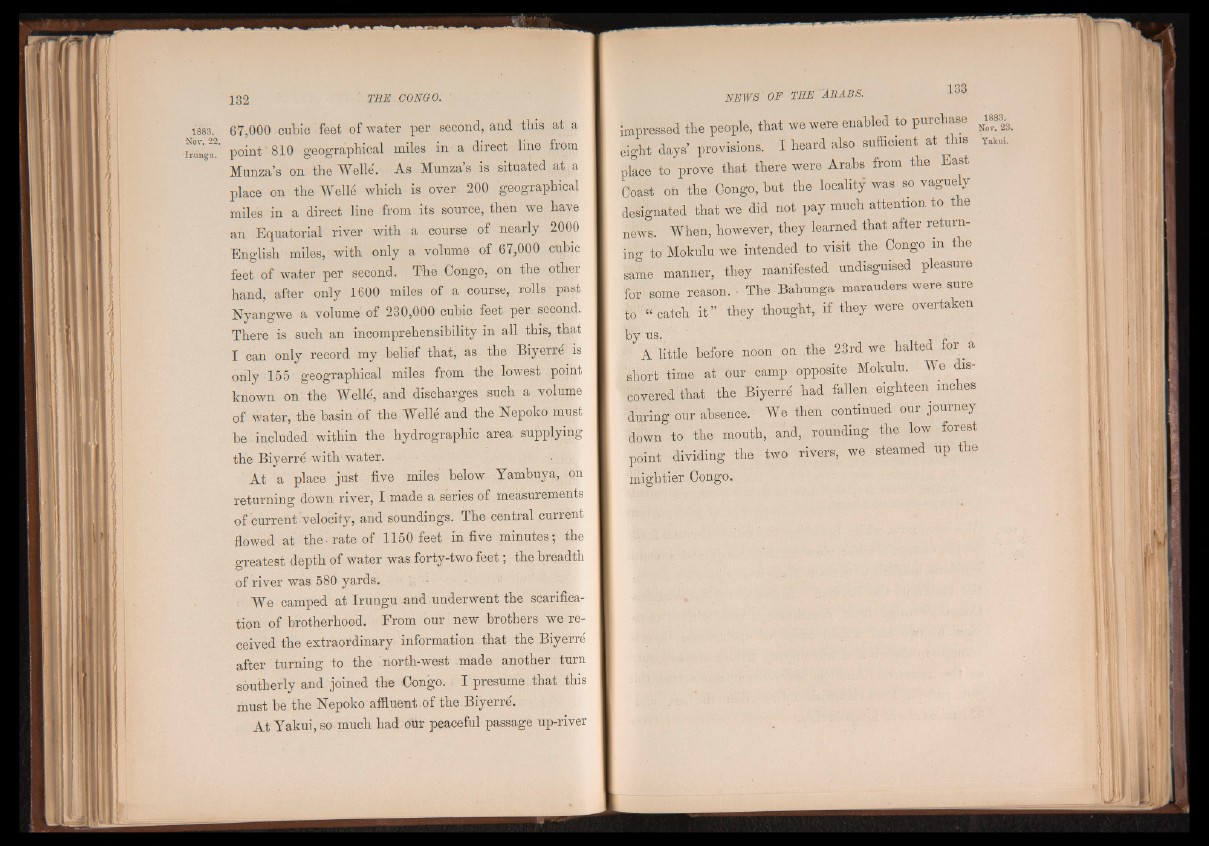
1883. 67,000 culoic feet of water per second, and this at a
tongu2' point- ' 810 geographical miles in a direct line from
Munza’s on the Welle'. As Munza’s is situated at a
place on the Welle which is over 200 geographical
miles in a direct line from its source, then we have
an Equatorial river with a course of nearly 2000
English miles, with only a volume of 67,000 cubic
feet of water per second. The Congo, on the other
hand, after only 1600 miles of a course, rolls past
Nyangwe a volume of 230,000 cubic feet per second.
There is such an incomprehensibility in all this, that
I can only record my belief that, as the Biyerre is
only 155 geographical miles from the lowest point
known on the Welle', and discharges such a volume
of water, the basin of the Welle and the Nepoko must
be included within the hydrographic area supplying
the Biyerre with water.
At a place just five miles below Yambuya, bn
returning down river, I made a series of measurements
of current velocity, and soundings. The central current
flowed at the. rate of 1150 feet in five minutes; the
greatest depth of water was forty-two fe e t; the breadth
of river was 580 yards.
We camped at Irungu -and underwent the scarification
of brotherhood. From our new brothers we received
the extraordinary information that the Biyerre
after turning to the north-west made another turn
southerly and joined the Congo. I presume that this
must be the Nepoko affluent of the Biyerre'.
At Yakui, so much had our peaceful passage up-river
impressed the people, that we were enabled to purchase
eight days’ provisions. I heard also sufficient at this
place to prove that there were Arabs from the East
Coast on the Congo, but the locality was so vaguely
designated that we did not pay much attention to the
news. When, however, they learned that after returning
to Mokulu we intended to visit the Congo m the
same manner, they manifested undisguised pleasure
for some reason. - The Bahunga marauders were sure
to' |c a tc h i t ” they thought, if they were overtaken
by us. „
A little before noon on the 23rd we halted for a
short time at our camp opposite Mokulu. We discovered
that the Biyerre had fallen eighteen inches
Yakui.
during our absence. We then continued our journey
down to the mouth, and, rounding the low forest
point dividing the two rivers, we steamed up the
mightier Congo.